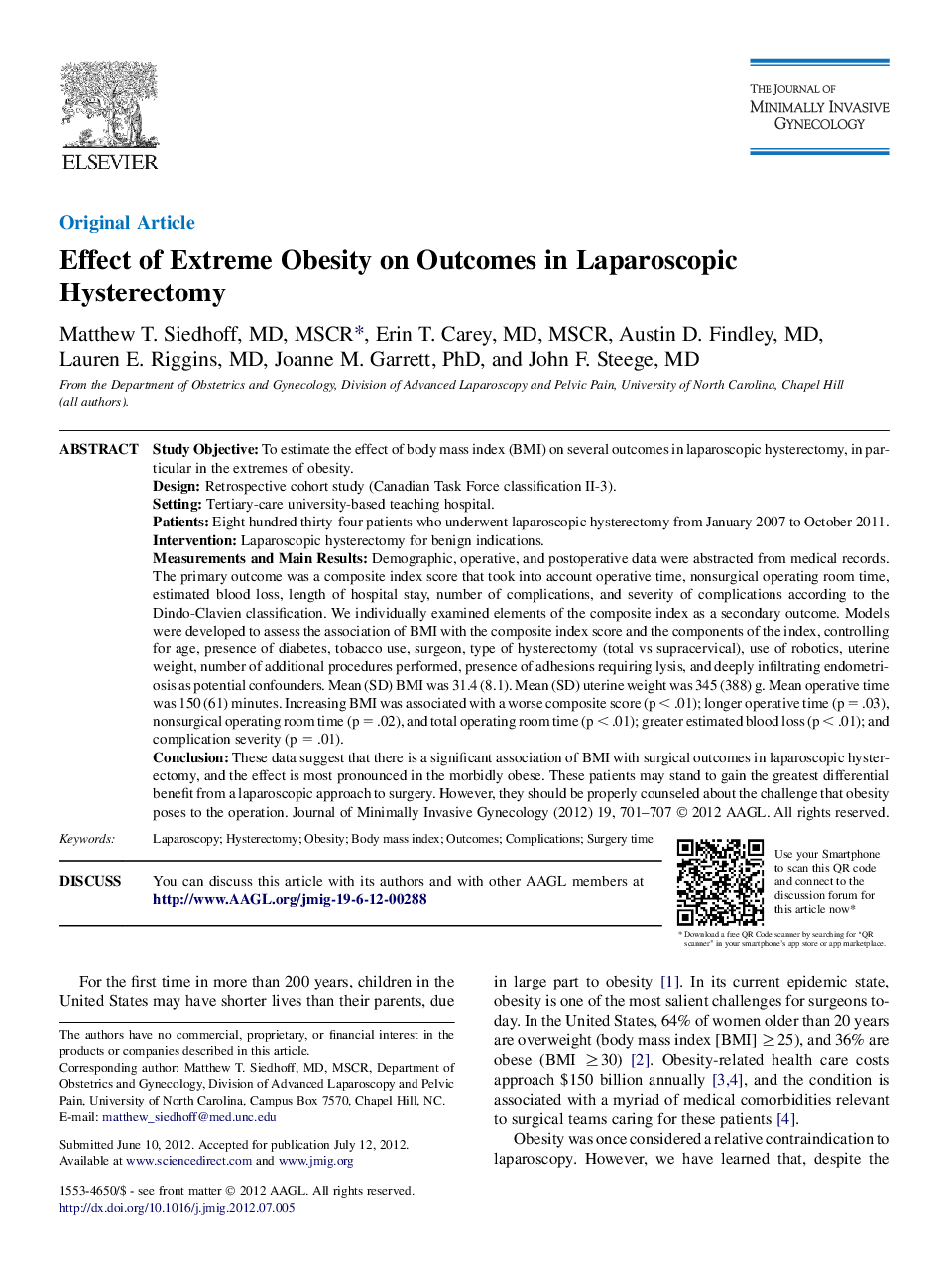| کد مقاله | کد نشریه | سال انتشار | مقاله انگلیسی | نسخه تمام متن |
|---|---|---|---|---|
| 3958523 | 1255419 | 2012 | 7 صفحه PDF | دانلود رایگان |

Study ObjectiveTo estimate the effect of body mass index (BMI) on several outcomes in laparoscopic hysterectomy, in particular in the extremes of obesity.DesignRetrospective cohort study (Canadian Task Force classification II-3).SettingTertiary-care university-based teaching hospital.PatientsEight hundred thirty-four patients who underwent laparoscopic hysterectomy from January 2007 to October 2011.InterventionLaparoscopic hysterectomy for benign indications.Measurements and Main ResultsDemographic, operative, and postoperative data were abstracted from medical records. The primary outcome was a composite index score that took into account operative time, nonsurgical operating room time, estimated blood loss, length of hospital stay, number of complications, and severity of complications according to the Dindo-Clavien classification. We individually examined elements of the composite index as a secondary outcome. Models were developed to assess the association of BMI with the composite index score and the components of the index, controlling for age, presence of diabetes, tobacco use, surgeon, type of hysterectomy (total vs supracervical), use of robotics, uterine weight, number of additional procedures performed, presence of adhesions requiring lysis, and deeply infiltrating endometriosis as potential confounders. Mean (SD) BMI was 31.4 (8.1). Mean (SD) uterine weight was 345 (388) g. Mean operative time was 150 (61) minutes. Increasing BMI was associated with a worse composite score (p < .01); longer operative time (p = .03), nonsurgical operating room time (p = .02), and total operating room time (p < .01); greater estimated blood loss (p < .01); and complication severity (p = .01).ConclusionThese data suggest that there is a significant association of BMI with surgical outcomes in laparoscopic hysterectomy, and the effect is most pronounced in the morbidly obese. These patients may stand to gain the greatest differential benefit from a laparoscopic approach to surgery. However, they should be properly counseled about the challenge that obesity poses to the operation.
Journal: Journal of Minimally Invasive Gynecology - Volume 19, Issue 6, November–December 2012, Pages 701–707